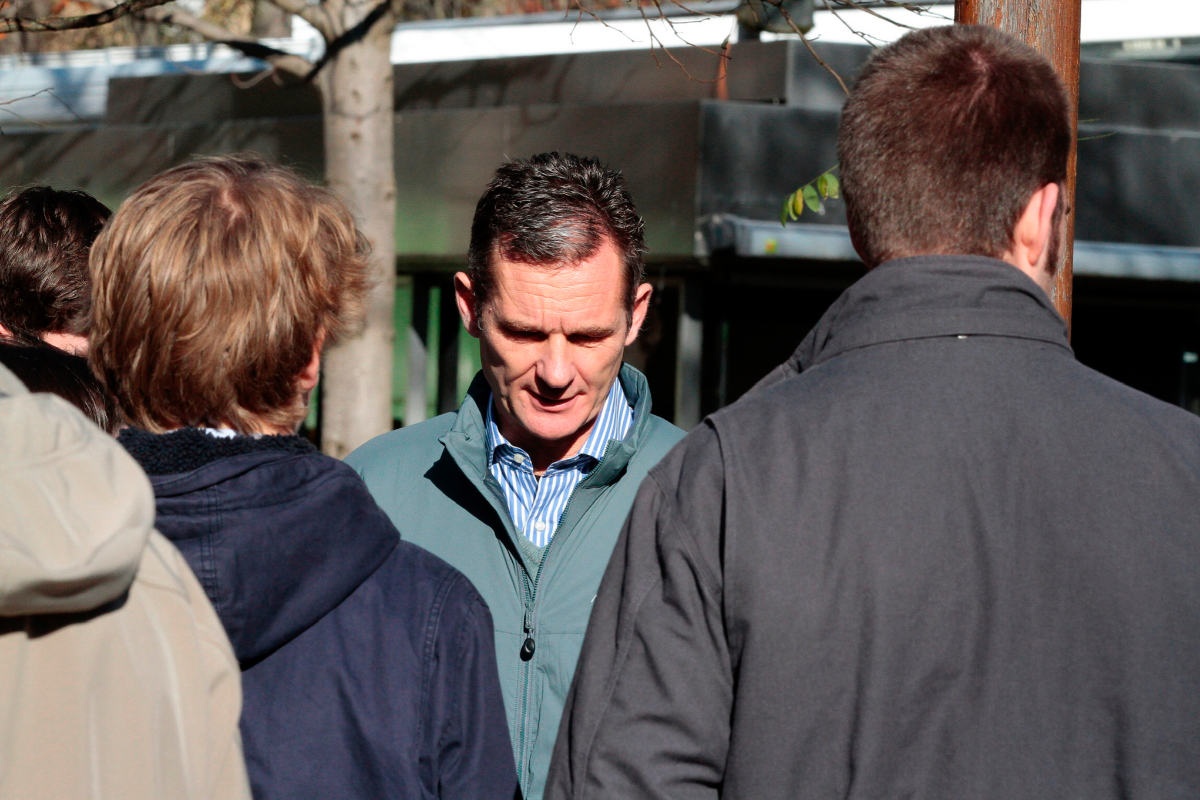- 'Procés'.All sovereign prisoners can now leave in semi-freedom
- Justice: The judge allows Urdangarin to leave prison two weekends a month
- The law: The keys of article 100.2 for the Generalitat to release prisoners from the 'procés'
The Penitentiary Surveillance judge responsible for Iñaki Urdangarin argues that the semi-liberty regime such as that granted to those convicted of prosecution should always be reviewed by the court that issued the sentence. Applied to 1-O, it would mean that decisions such as the one known on Thursday to apply to Jordi Cuixart the favorable regime of Article 100.2 should have the endorsement of the Supreme Court before being applied.
This is how Judge Florencio de Marcos Madruga maintains it in the car in which he grants this flexible regime to the husband of Infanta Cristina. It keeps him in second grade - he was already asking for the third one - but through 100.2 he accepts that he can leave prison two weekends a month.
The judge applies to the decision his criterion on who reviews decisions of this type: Urdangarin will not be able to enjoy the exits until the car is firm, either because it is not appealed by the Prosecutor's Office or because it is endorsed by the Audience of Palma , which is the who condemned Urdangarin. No, therefore, the Audience of Ávila, which has jurisdiction over Brieva prison.
The application of article 100.2 of the Penitentiary Regulation implies granting the third degree advantages to the inmate, despite formally maintaining it in the second degree. The regulations establish that, when appealed, decisions affecting the prison regime fall to the provincial hearing of the prison.
However, those of more importance that affect the classification of degree - first, second or third - must be ultimately approved by the same court that issued the sentence. According to this Surveillance judge, 100.2 must enter this second group, because it fully affects the penitentiary degree.
Legislative deficiencies
"Is the principle of flexibility -art. 100.2- something purely regimental? Does it affect the classification?" Asks the judge in the various pages of the car dedicated to studying the matter. The first of the arguments to answer that yes is that Article 100 itself, "is the first one that is included under the heading Classification of Penalties " in the Penitentiary Regulation.
And he adds that the doctrine, when dealing with matter in studies or manuals, "does [...] not as a mere regimental aspect".
Doubts about who should resolve resources against 100.2 have their origin in several legislative deficiencies. With the creation of 100.2, the Penitentiary Regulation entered a field that did not seem to be provided for in the Penitentiary Law, and the Organic Law of the Judicial Power sets out who resolves with more than confusing wording.
The result is that judicial practice has varied by province, without the Supreme Court still imposing a single criterion. The practice in Catalonia was that the 100.2 be reviewed by the provincial hearing and not by the sentencing court, and this has been done in the process .
The opinion of the Prosecutor is not unanimous. In their day, most of the surveillance prosecutors supported the thesis that they were the hearings, but the opinion of the main experts of the Public Ministry was the opposite.
In practice, in the case of procés , the Prosecutor's Office has appealed in a belligerent manner - until now - the concession of 100.2, but has accepted that it is the Barcelona Hearing (for Lledoners prisoners) that has the last word on the semi-freedom of the damned.
According to the criteria of The Trust Project
Know more- Supreme Court
- Iñaki Urdangarin
- Jordi Cuixart
- Catalonia
- Proced judgment
'Procés' The Generalitat paid the UN commission that asked to release the prisoners from the 'procés'
Politics Jordi Sanchez accuses ERC of acting for electoral tacticism in October 2017
'Procés' Prosecutors blame the Supreme Court that Quim Torra can free prisoners from 'procés'

